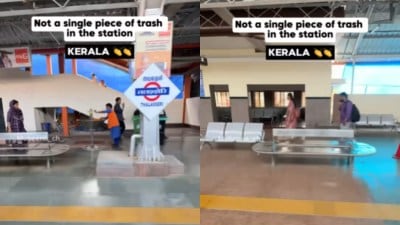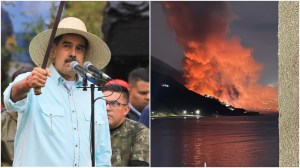Science seeks emancipation from the text-book
VADODARA, May 3: A revolution is in the making.'' Words spoken by not just anyone, but by M S University's Science Faculty Dean Bonny Pil...

VADODARA, May 3: A revolution is in the making.8221; Words spoken by not just anyone, but by M S University8217;s Science Faculty Dean Bonny Pilo. And not just about anything, but the quiet comeback being staged by practical science in Vadodara talukas.
Yes, that8217;s right, in rural Vadodara. Three hundred years ago, one man saw an apple drop from a tree and asked why; and the world learnt about gravitation. But in the intervening years, science became a word associated more with text-books than life itself. To liberate the subject does not promise to be easy, but that is what a Vadodara-based non-governmental organisation is setting out to do.
8220;We don8217;t want children to score high marks in exams. We want them to develop a scientific temperament and acquire true knowledge8221;, says Vasant Vadwale, coordinator of Science Education at Shishu Milap. 8220;Science is a moving spirit of our lives, but it has been reduced to formulas learnt by heart from text-books.8221;
Inspired by the Madhya Pradesh-based Eklavya Sangathan, the innovative science programme got the go-ahead of the Gujarat Council for Educational Research and Training on January 27. The project, which is currently underway in 25 selected schools in various talukas of the district, helps 1,000-odd students of standard V to VII understand that science explains the whys8217; of everyday phenomena.
After evaluating the impact of the five-year new science syllabus in these schools, the State government may introduce it throughout Gujarat.
So far as the children are concerned, however, there seems little doubt about its success. 8220;I used to hate science 8212; I found it very tough. But now it8217;s my favourite subject and, I think, the easiest,8221; says Deval Patel, a fifth standard student of a new science8217; school.
The practical approach seems to have helped. Beams Kashyap Vyas, a sixth standard student of Bil village, about 12 km from Vadodara, 8220;I don8217;t have to refer to a book for answers; I can understand how things happen now. I do all the experiments on my own now; earlier, most of us never got to carry out any experiments.8221;
That is a common grievance with most students. Says Medha Bhatt, also from Bil, 8220;When my teacher performed the experiment, I could hardly see anything because of the crowd around him. And just a day before the examination, I8217;d have to learn everything. quot;But if I forgot one point, I8217;d get stuck. Here I learnt everything on my own.8221;
To guide the children, Shishu Milap also plans to supply books and science kits to the involved students, while new science activists and professors from M S University have been conducting creative workshops, exhibitions and practical sessions at district panchayat-run schools for an year turn to now.
Says MSU8217;s Saila Telang, who was part of the group, 8220;The children were very curious; it was a fruitful experience. If the government continues its support, the efforts will be a massive success.8221;
Agrees retired Science faculty teacher Madhuben Shah: 8220;Even at the university, we come across students whose basics are weak. This experiment shows where the beginnings have to be made.8221;
8220;In American schools, they take children to the sheep and make them touch them to find out what wool is like; this is something like this8221;, says Pilo.
Not just the students or the visiting professors, rural teachers, too, seem enthused by the project. Says Dahyabhai Kataria, who8217;s been teaching the subject for 10 years at the Bil panchayat school, 8220;I8217;ve also learnt how science ought to be taught.8221;
And those words, more than any other, indicate how far-reaching the impact of the project can be.
- 01
- 02
- 03
- 04
- 05































